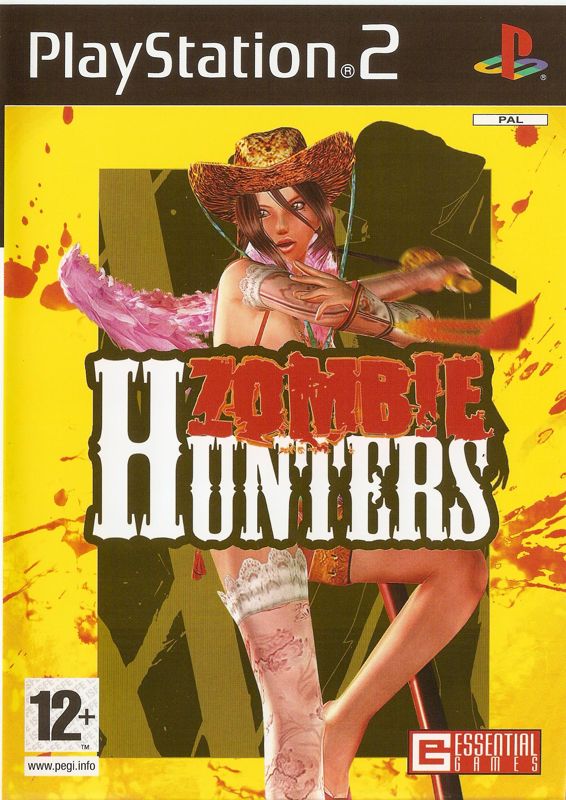Retro Replay Review
Gameplay
Zombie Hunters retains the core run-and-gun action that made the original Zombie Zone a cult favorite, yet the enhanced version brings fresh elements to each playthrough. As Aya, the cowboy-hat-wearing, samurai-sword-wielding heroine, players can slash through hordes of undead with fluid combos and responsive controls. The pacing is relentless, with waves of zombies, skeletons, and mutated beasts forcing constant movement and quick decision-making.
(HEY YOU!! We hope you enjoy! We try not to run ads. So basically, this is a very expensive hobby running this site. Please consider joining us for updates, forums, and more. Network w/ us to make some cash or friends while retro gaming, and you can win some free retro games for posting. Okay, carry on 👍)
New to this enhanced edition are two additional playable characters who diversify the experience without altering the fundamental mechanics. Riho Futaba, available from the outset, brings an alternate style—sporting a blue bikini and high heels—while wielding the same move set as Aya. Despite her cosmetic differences, Riho’s inclusion offers a fresh visual flair that keeps repeated runs feeling lively.
The second newcomer, Makoto, is unlocked through in-game progression, adding a narrative twist and incentive to revisit earlier stages. While Makoto mirrors Aya’s abilities exactly, her presence deepens the lore and provides variety in character selection screens, especially for players interested in story-driven unlocks rather than purely cosmetic changes.
Overall, the gameplay loop is simple but satisfying: clear each level’s undead onslaught, rescue hostages, and face off against towering bosses. The slight tweaks in character choice and stage hazards create enough variation to maintain engagement across multiple sessions without overcomplicating the mechanics.
Graphics
Visually, Zombie Hunters enhances the pixel-art charm of its predecessor with sharper sprites, richer color palettes, and smoother animations. Aya’s samurai sword slashes leave vibrant trails, and blood splatters have been refined to convey impact without overwhelming the screen. The environments—ranging from haunted graveyards to neon-lit cityscapes—are detailed and memorable.
Riho and Makoto’s character models demonstrate the art team’s commitment to consistency and style. Despite the provocative design of Riho’s outfit, her animations are tastefully executed, ensuring that combat remains the focus. Makoto’s sprite work mirrors her sister’s but features unique idle poses and attack effects that subtly distinguish her in play.
The boss encounters stand out as graphical showpieces, with larger-than-life foes that fill the screen and exhibit multi-phase attack patterns. Each boss arena is meticulously designed, blending atmospheric lighting with foreground debris to heighten the sense of danger. The result is an arcade-like spectacle that keeps players on edge.
Technical performance is rock-solid: frame rates remain stable even when dozens of enemies are on-screen, and load times between levels are minimal. The upgraded presentation proves that an arcade-style aesthetic can still shine in a modern release, offering both nostalgia and polish.
Story
The narrative thrust of Zombie Hunters centers on Aya’s quest for vengeance against her sister, weaving a personal vendetta into the zombie-busting action. This family feud provides emotional weight to each level, with shaded flashbacks and dialogue snippets peppered between stages. Aya’s cowboy hat and samurai sword become symbols of her resolve and cultural heritage.
Riho’s inclusion, while not directly tied to Aya’s vendetta, creates an intriguing parallel storyline. Her own tale of revenge—though mostly cosmetic—hints at a broader world beset by darkness, suggesting that the zombie outbreak has multiple victims with their own motivations. Though Riho’s arc is less fleshed out, it enriches the setting by underscoring that Aya’s journey is but one thread in a larger tapestry.
Makoto’s late-game appearance elevates the stakes by introducing familial conflict. As Riho’s younger sister, Makoto casts new light on themes of loyalty and betrayal, tying back to Aya’s sibling rivalry. This triad of relationships transforms a straightforward zombie romp into a layered drama, making each boss encounter feel like a climactic chapter in a personal saga.
While the story does not reinvent the genre, it strikes a balance between action and narrative that keeps players invested. Brief cutscenes and character interactions are well-paced, ensuring that the drive for revenge remains motivating without stalling the gameplay momentum.
Overall Experience
Zombie Hunters succeeds as both a nostalgic revival and a modernized arcade shooter. The core mechanics feel familiar to fans of Zombie Zone while the extra characters and visual enhancements give newcomers plenty of reasons to dive in. The pick-up-and-play accessibility makes it ideal for short bursts or marathon sessions alike.
Replayability is high, thanks to the trio of playable protagonists and the desire to discover all story beats. Completing the campaign with each character yields minor scene changes and unlocks bonus content, rewarding thorough exploration. Leaderboards and time-attack modes further incentivize mastery of each level’s layout and enemy patterns.
Cooperative play remains a highlight: teaming up with a friend as Aya and Riho (or Makoto) transforms the experience into a chaotic yet coordinated frenzy. The shared-screen format encourages strategizing who takes on which sections and fosters memorable moments when both players narrowly escape a boss’s final, devastating strike.
In sum, Zombie Hunters is a well-rounded package that enhances a beloved classic with additional characters, refined visuals, and a more nuanced story. Whether you’re revisiting a childhood favorite or seeking a fresh arcade-style challenge, this enhanced version delivers on action, style, and replay value.
 Retro Replay Retro Replay gaming reviews, news, emulation, geek stuff and more!
Retro Replay Retro Replay gaming reviews, news, emulation, geek stuff and more!




Reviews
There are no reviews yet.